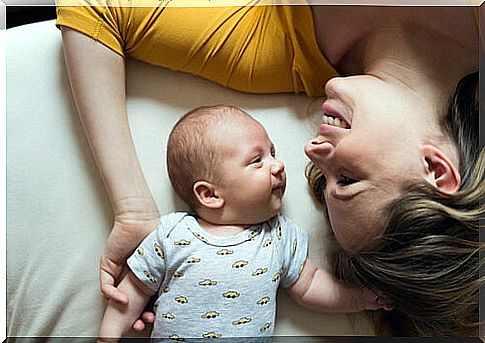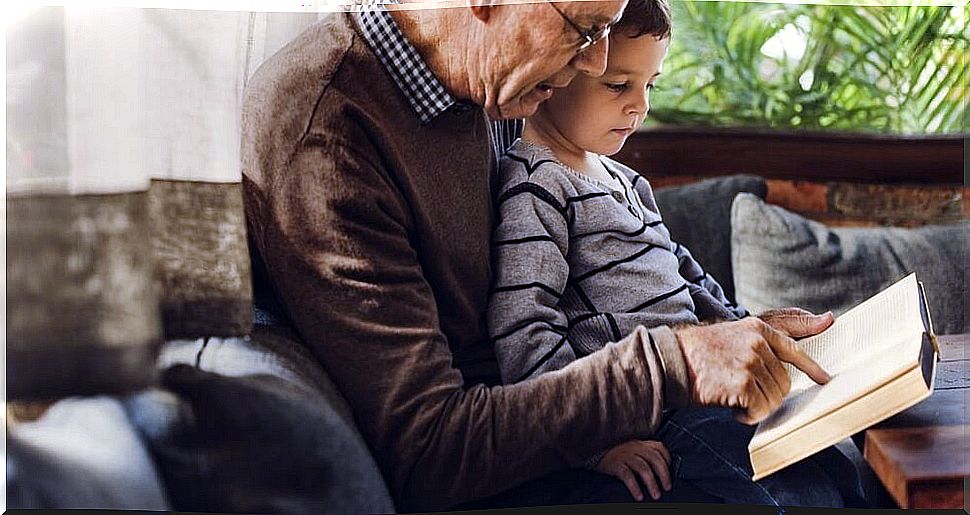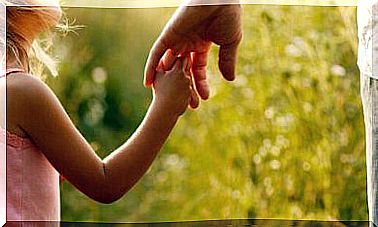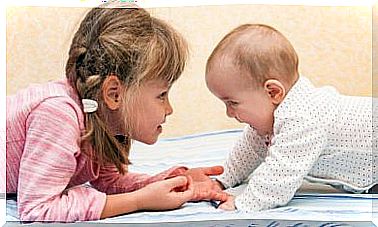The Importance Of The Family In The Socialization Of Children

With the arrival of a baby at home, the family becomes an indispensable and essential factor for its development. This newborn is a defenseless and vulnerable being who will become the center of attention, as well as the target of learning, concerns, protection and support. The family acquires a leading role in the socialization of the children.
We must not forget that, although throughout life that child will find many other socializing and educating agents on his way, the family is the main axis through which he will develop in the world and will form and build his person.

The family in the socialization of children
The family is the primary socializing agent for children. It is the first agent that shows infants how it will be and how it should behave in society. It is in this first social group where the foundations are laid in their formation as individuals capable of leading a life in society.
Primary socialization, as Matestre (2009) says, consists of instilling in minors, among others, skills such as:
- Talk.
- Self-citizen.
- Obey the elders.
- Protect the little ones.
- Share food.
- Get started in oral language.
- Participate in collective games respecting regulations.
- Distinguish in an elementary way between what is right and what is wrong.
This whole learning process will obviously not be the same in all parts of the world. Therefore, the influence of culture, society, individual initiatives … condition this entire process.
Furthermore, although we may think that the nuclear family, made up of parents and siblings, is the one that exerts the most influence on children, we must not forget about the extended family. Within the extended family, the people who most often mark in childhood are grandparents.
Therefore, from the family we must train our children so that they are subjects capable of living as part of citizenship. Including them from small and little by little in social activity. As Zuluaga (2004) says, inclusion has limits and must be progressive:
- On the one hand, boys and girls are included as subjects of social citizenship (subjects of rights).
- On the other hand, they are excluded from legal citizenship (equality before the law, freedom) and from political citizenship (non-intervention in the political decisions of the State).

School and family: balance
Traditionally, the family and the school have been assigned the function of being transmitters of the knowledge that young people need for their future life, as well as of socialization in the norms and values (Torío, 2004).
The most recent data tell us that the school has been distancing itself from this transmission of education linked to the norms of behavior, values and knowing how to be.
This is not to say that the goals of the family and the school are not the same. But it is true that, although the common project exists, each of these agents has different specific objectives. Although it is true, sometimes the work can be common, but limits must be established to avoid possible disagreements.
Both school and the family are key elements in the socialization of children. As Maestre (2009) says, school and family have overlapping influences and shared responsibilities, so both institutions must cooperate in education. Parents and teachers have to redefine their relationships and substitute collaboration for conflict.
The pedagogical work of the school must be supported by the family. Parents have to be involved so that all objectives, common or not, can be achieved in a satisfactory way. This implication can occur in some of these cases (Maestre, 2009):
- Interviews with the teaching staff.
- Support at home with homework.
- Accompaniment on outings.
- Participation in school council meetings, as well as in AMPA activities
Ultimately, the school needs the family, but the family also needs the school. This implies co-responsibility for the achievement of educational goals. In the end, the greatest benefactors of this good understanding will be our children, who will become individuals formed in the family, as well as in the school and social spheres.









